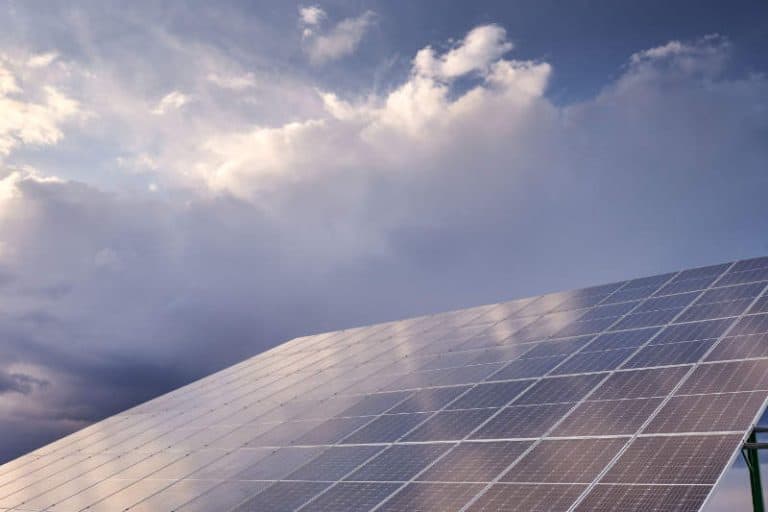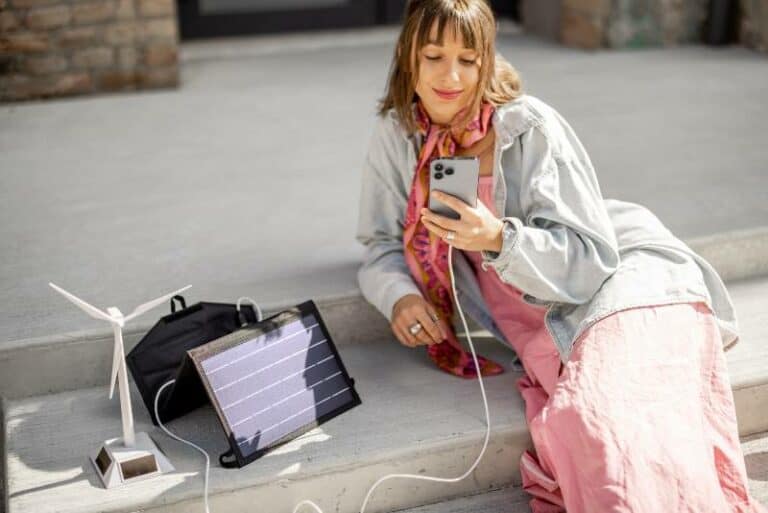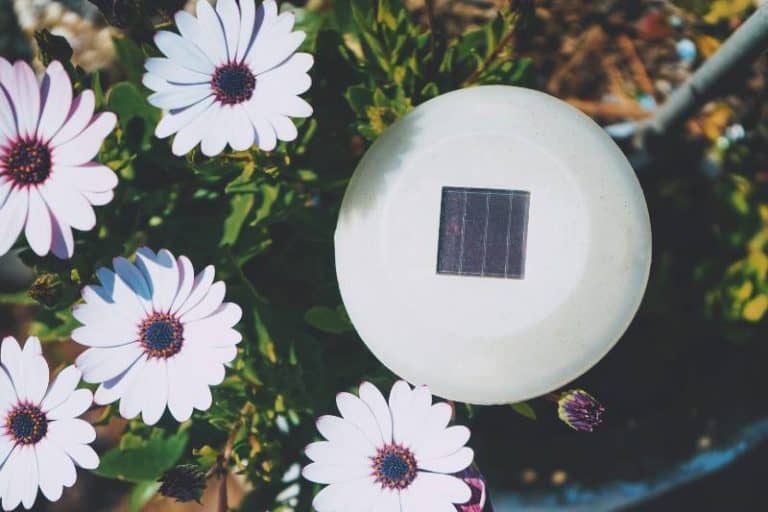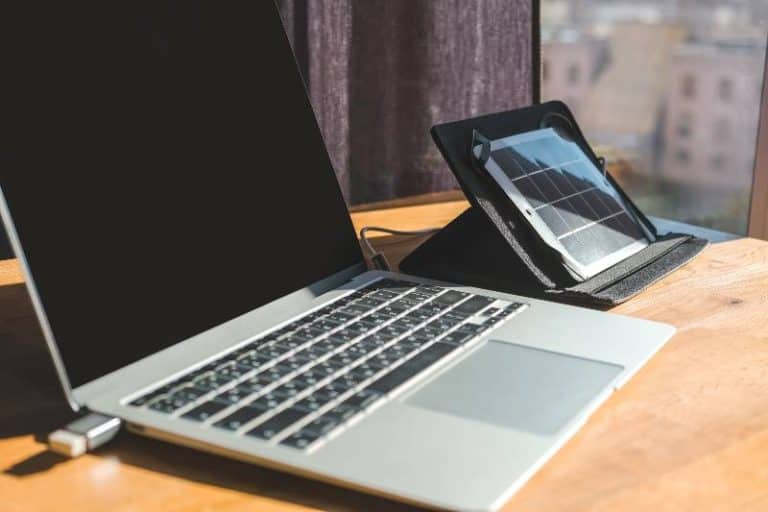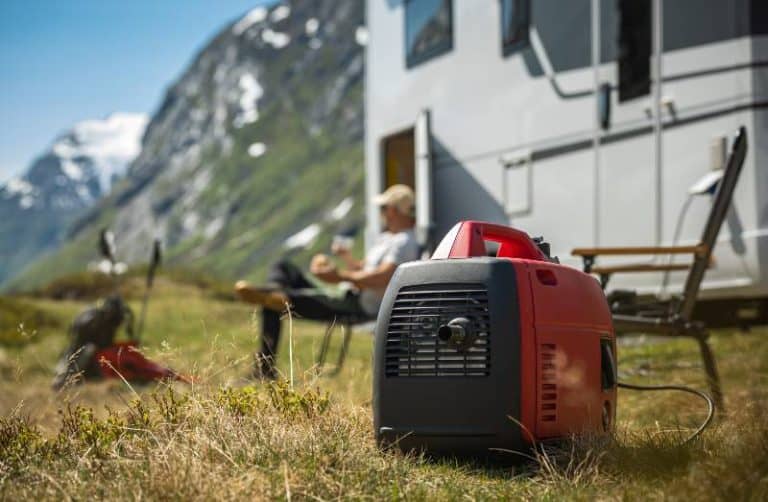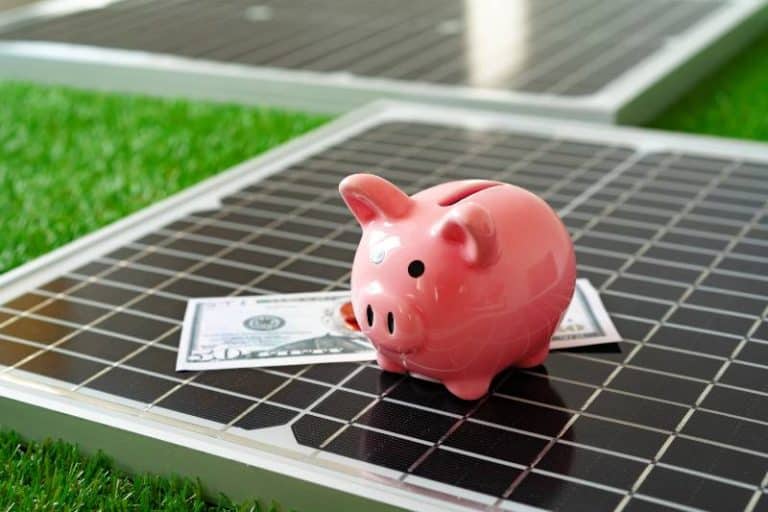Fight Inflation: Save Money with Portable Solar Panels
The cost of living has been continuing to rise, with increasing prices for everyday goods, utilities, and electricity. With this inflation comes an increased need to find alternative ways to save money, especially when it comes to our energy consumption. Portable solar panels provide one potential solution – helping homes become more self-sufficient in terms of their energy use while providing significant savings on electricity bills. In this blog post, we’ll be taking a look at why portable solar panel system is becoming increasingly popular, what their benefits are, and how they can help reduce your household energy costs over time.
As inflation keeps going up, it is more important than ever to find ways to save on energy expenses. Portable solar panels present a way to cut costs, as they provide clean and renewable energy that can assist in reducing dependence on conventional energy sources. By purchasing portable solar panels, individuals can save money in the long run and beat inflation.
Key Takeaways
- Portable solar panels provide a way to save money on electricity costs due to inflation.
- By investing in portable solar panels, individuals can reduce their dependence on conventional energy sources and become more self-sufficient.
- Portable solar panels have the added benefit of being clean and renewable energy sources that are good for the environment.
Understanding Portable Solar Panels
What are portable solar panels?
When it comes to finding alternative sources of power, portable solar panels have become increasingly popular in recent years. These versatile devices are designed to capture the sun’s energy and convert it into usable electricity in a clean, efficient way. Unlike traditional solar panels, portable solar panels are built to be lightweight and easy to transport, making them ideal for anyone who wants to explore the great outdoors while still being able to stay connected. Not only are they great for camping trips and outdoor adventures, but portable solar panels can also serve as a backup power source during emergencies or power outages.
How do they work?
Solar panels work by converting the energy from the sun into usable electricity. This process is made possible through the use of photovoltaic (PV) cells, which are the basic building blocks of solar panels.
PV cells are made up of layers of silicon, a semiconductor material that is able to absorb sunlight and release electrons. When sunlight hits the PV cell, some of its energy is absorbed by the silicon atoms, which causes some of its electrons to become excited and break free from their atoms. These free electrons then flow through the silicon to produce an electric current.
The electric current generated by the PV cells is in the form of direct current (DC) electricity, which is not compatible with most household appliances and electronic devices that use alternating current (AC) electricity. To make the electricity produced by solar panels usable, it is sent through an inverter, which converts it from DC to AC electricity.
Once the electricity has been converted to AC, it can be used to power homes, businesses, and other structures. Excess electricity that is not used immediately can be stored in batteries or sent back to the grid for later use.
Overall, solar panels work by using the energy from the sun to produce usable electricity through the use of photovoltaic cells, which convert sunlight into direct current electricity that is then converted to alternating current electricity through an inverter.
Types and features of portable solar panels
The solar industry is creating a way for solar to be a convenient and environmentally friendly way to generate electricity while on the go. They come in various types and sizes, with each offering unique features that cater to different needs. Here are some of the most common types and features of portable solar panels:
Foldable Solar Panels
The solar panels are light in weight and can be easily folded, making them convenient to carry and store. They are perfect for outdoor activities like camping and hiking. Additionally, the panels are made of durable and weather-resistant materials and offer various output options like USB and DC.
Solar Chargers
Solar chargers are small devices equipped with solar panels that are made for charging smartphones, tablets, and other small electronics. They have multiple USB ports, built-in LED lights, and a power bank feature for storing energy.
Solar Backpacks
These are backpacks that have built-in solar panels so that you can charge your devices while you’re walking. The backpacks typically have a USB output port, compartments with padding for your electronics, and are made with materials that are resistant to water.
Flexible Solar Panels
Solar panels that are flexible have a thin and lightweight design, which makes them easy to transport. They can also be bent or rolled up, making them a perfect fit for use on boats, RVs, or uneven surfaces. These panels may include features such as adhesive backing for easy installation, weather resistance, and various output options.
Semi-Flexible Solar Panels
These solar panels are a blend of traditional and fully flexible panels, offering both rigidity and flexibility. They can bend slightly to fit curved or irregular surfaces, making them great for curved roofs. Additionally, they are durable, weather-resistant, and highly efficient.
Solar Generators
A solar generator is a type of portable power station that includes solar panels for producing electricity. Its purpose is to offer a dependable power source during outdoor adventures, blackouts, or crisis situations. Some of its characteristics consist of various output choices such as AC, DC, and USB ports, an inverter built into the system, and an LCD display.
To select the right portable solar panel, you should think about your power needs, the devices you want to charge, your budget, and the specific features you need. Ensure that the panel you choose provides the appropriate power output, efficiency, and size to meet your requirements.
Benefits of Using Portable Solar Panels
Using portable solar panels offers a range of benefits, including solar savings, environmental benefits, and increased convenience. Here are some of the advantages of using portable solar panels:
Saving on energy bills
By using portable solar panels to generate electricity, you can reduce your reliance on grid power and save on energy bills. This is especially true if you frequently use electricity outdoors, such as during camping trips, outdoor events, or while working in remote locations. Charging your devices and powering small appliances using solar energy can lower your electricity consumption and associated costs.
Reducing carbon footprint
Reducing our carbon footprint has become more important than ever before. That’s why it’s vital for us to use renewable and sustainable forms of energy, like solar power systems. One of the easiest and most convenient ways to do this is to invest in portable solar panels. These panels offer numerous benefits, from lowering our reliance on non-renewable energy sources to reducing our environmental impact.
Energy independence
In today’s fast-paced world, the benefits of using a solar system cannot be overstated. One of the most significant advantages is energy independence, allowing people to generate their own power and reduce reliance on traditional grid electricity. Portable solar panels can also be easily transported to remote areas where electricity may not be readily available, making them the perfect solution for outdoor enthusiasts and emergency responders.
Versatility and portability
With the rise of eco-friendliness and sustainability in recent years, more and more people are turning to portable solar panels as a reliable source of clean energy. One of the biggest advantages of using these panels is their versatility – they can be used in a wide variety of situations, from camping trips to powering small appliances during power outages.
Tips for Choosing the Right Portable Solar Panel
Assessing your energy needs
When it comes to choosing the right portable solar panel, the first step is to assess your energy needs. This involves determining how much power you will need to run your devices or appliances while you are off-grid or on-the-go. To do this, you should make a list of all the devices you plan to use, along with their power requirements in watts.
Next, estimate how long you will be using each device per day, and multiply this by the wattage to calculate the total watt-hours you will need. It’s important to factor in some extra capacity to account for unexpected energy usage or cloudy days when your solar panel may not be able to generate as much power.
Once you have a clear idea of your energy needs, you can start looking for portable solar panels that can meet those requirements. Look for panels with a higher wattage rating and capacity to ensure they can produce enough power to meet your needs. Keep in mind that the size and weight of the panel may also be important factors to consider, especially if you plan to carry it around with you.
Comparing panel efficiency and output
When selecting a portable solar panel, it’s crucial to take into account its efficiency and output. These qualities determine how efficiently the panel converts sunlight into usable energy and how much power it can produce under optimal conditions.
When comparing the efficiency of panels, check their conversion efficiency rating, which indicates the percentage of sunlight that can be converted into usable energy. The panel with a higher rating is more efficient at converting sunlight into power. But remember, efficient panels may cost more, so you need to consider your budget as well.
To ensure better energy generation, don’t just focus on efficiency. Check the panels’ wattage rating and capacity as well. Choose panels with a higher rating and capacity as these can produce more power and better meet your energy needs.
When selecting a solar panel, it’s crucial to remember that factors like weather, sun angle, and shading can impact its efficiency and output. Therefore, it’s essential to choose a durable and reliable panel that can endure outdoor conditions.
Checking for durability and warranty
A good warranty will cover the panel for a long period of time and offer protection against defects, damage, and other issues that may arise. Look for a warranty that covers both parts and labor, and that has a clear and easy-to-understand claims process.
Budget considerations
When selecting a portable solar panel, it is important to keep in mind your budget since prices can differ based on size, efficiency, and output. To balance your energy requirements with your budget, consider the following suggestions:
- Determine your energy needs: As previously stated, begin by evaluating your energy requirements and determining the amount of power necessary to operate your equipment. This will assist you in selecting a solar panel that is adequate to fulfill your requirements without spending too much.
- Look for deals and discounts: If you want to buy affordable portable solar panels, it’s a good idea to search for deals and discounts. Visit online retailers and manufacturer websites, as they often have special offers and promotions available.
- Consider buying used or refurbished: If you don’t have much money to spare, it’s worth considering purchasing a second-hand or restored solar panel. It’s a way to get a first-rate panel without spending too much. However, make sure to buy from a reliable vendor and inspect the panel closely before making the purchase.
- Don’t skimp on quality: To ensure you get a durable and functional solar panel, prioritize quality over price when sticking to your budget. Choosing a low-cost panel might mean lower longevity and performance compared to a higher-quality option. Investing in a reliable panel that suits your requirements will serve you better in the long run.
To make things clear, a portable solar panel can help you save on energy expenses and provide power in places where there isn’t any. Pick a panel that matches your energy requirements and budget, and you’ll be able to enjoy the advantages of solar power without spending too much.
How to Use and Maintain Portable Solar Panels
Proper setup and installation
To ensure the safe and efficient functioning of your portable solar panel, it is important to set it up and install it correctly. Below are some tips to help you with the setup process.
Location counts
The solar panel should be set up in a location where it can receive maximum sunlight throughout the day. This means avoiding areas that are shaded or obstructed by trees or buildings.
Position the solar panel correctly
For best results, the solar panel should be positioned at an angle that is equal to your latitude. This will help maximize the amount of sunlight that the panel receives.
Connect the panel to a charge controller
A charge controller is a device that regulates the flow of power from the solar panel to the battery. It helps prevent overcharging and damage to the battery.
Connect the battery to the inverter
To ensure a steady supply of power to your devices, connect the battery to the inverter, which is used to convert DC power from the solar panel to AC power that can be used by your devices.
Test the system
After all the connections are made, perform a system test to confirm its proper functioning. Keep a track of the battery charge level and inverter output to verify that everything is working as it should.
Maximizing solar energy output
Solar panels generate the most energy when they are facing directly toward the sun. For optimal sunlight exposure throughout the day, it is recommended to face the panels towards the due south direction, as suggested by Solar Reviews. If the panels are oriented towards the west, they will generate more power in the afternoon and early evening.
Cleaning and maintenance tips
To clean solar panels, use a soft rag or biodegradable soap. Avoid using harsh materials that could cause damage as repairs can be expensive. If you clean your panels frequently, simply using a hose to remove dirt may suffice.
Check out this comprehensive guide to discover the best techniques and methods for cleaning solar panels effectively, ensuring optimal performance and longevity.
Beat Inflation with Portable Solar Panels FAQs
How do portable solar panels work?
To clarify, portable solar panels convert sunlight into electricity through photovoltaic cells made of silicon and other materials. When sunlight hits these cells, they generate electrons which are then stored in a battery or inverter, allowing you to power your devices.
Are portable solar panels efficient?
The effectiveness of portable solar panels may differ based on several factors like the panel’s quality, the amount of sunlight it gets, and the devices it’s charging. If you invest in high-quality portable solar panels, they can effectively convert sunlight into electricity, making them a dependable source of renewable energy.
Can portable solar panels replace traditional energy sources?
Although portable solar panels offer a clean and renewable energy solution, they may not be a feasible replacement for all traditional energy sources. The amount of energy required, weather patterns, and geographic location can all influence the practicality of relying solely on portable solar panels for power.
What are the different types of portable solar panels?
To clarify, there are two primary kinds of portable solar panels: folding and roll-up. Folding solar panels consist of multiple panels that can be folded for convenience during transport, whereas roll-up solar panels are created using flexible materials that can be rolled up for storage.
How do I choose the right portable solar panel for my needs?
When selecting a portable solar panel, you should think about your energy needs, the panel’s efficiency and output, how durable it is, and its warranty, as well as your budget. Properly installing solar panels, maintaining them, and getting the most energy out of them are also crucial.
Conclusion
In summary, the rise in inflation has led to a continuous hike in electricity prices. To tackle these challenges, choosing renewable energy sources is not only cost-effective but also environmentally friendly. Portable solar panels are an affordable and flexible solution where you can modify your own power source according to need and size.
With their ability to operate off-grid and reduce electricity bills significantly, they can be used as long-term solutions for households seeking financial freedom. What’s more, these panels have become one of the most popular types of solar products on the market.
From residential use to commercial applications, portable solar panels are powering lives sustainably by delivering cleaner energy for everyday activities at home or abroad.
I hope that this blog post has inspired you to make the switch from traditional energy sources to the modern world of sustainable energy production — if you’d like more tips on how to beat inflation with affordable solar options, subscribe to our newsletter for more sustainable living tips from Electrik Living!

